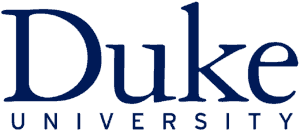Keeping up with ever-changing technologies, analytical methods, and software tools is essential for today’s businesses and organizations. Operations research analysts are exceptional problem-solvers that are well versed in advanced techniques. Optimization, data mining, mathematical modeling, and statistical analysis are just a few of the skills that operations research analysts use to develop answers to the problems that businesses face.
Operations research analysts are vital to creating systems that help organizations work efficiently and in a cost-effect manner. Their skills are relevant to a variety of industries because they meet the needs of organizations at a fundamental level by assisting with big data, supply and chain management, modeling and computation, scheduling, marketing, and more.
These free resources for operations research analysts are great continuing education for anyone in the field. Every resource on this list is committed to keeping up to date information to serve those in the field of analytics, data, and technology.
Analytics Vidhya

Analytics Vidhya is a place for operations research analysts to look for jobs, learn from and engage with other operations research analysts, and take free courses to enhance their skills. Each month there are more than three million visitors to the site. Professionals can search for jobs from well-respected companies like Indifi, Sapient, KPMG, Edvancer, and more. Nearly 500,000 data scientists come together to create content and learn from one another. One of the unique ways that operations research analysts interact is through Hackathons. Hackathons allow participants to practice their skill set, learn from experts, win prizes, and potentially land their dream job.
For professionals who may be new to data science, there are a variety of paid courses and free resources for operations research analysts. They cover everything from how to up-level your data science resume to Certified AI & ML Blackbelt+ program. The Analytics Vidhya blog offers free information for all things data science. Some of the recent post topics included top Youtube channels for data scientists, an introductory guide to linear programming, and 40 questions to test a data scientist on clustering techniques.
Data Visualization and Communication with Tableau Course

Duke University offers the free online Data Visualization and Communication with Tableau course. Participants can expect to improve communication skills of data analysis, how to structure data analysis projects effectively, and how to streamline analysis efficiently through visualizations in Tableau. Tableau features assist in the development of effective visualization tools that relay data findings in a direct way. This course also gives students the ability to design and present business-centered “data stories” that combine the skills learned throughout the class. Instructors for this course are top professors from both Duke and the Social Science Research Institute.
Students learn through five weeks of modules that add up to 25 hours of self-paced learning. Weekly topics cover many relevant subjects such as S.M.A.R.T. objectives, SPAP graphics, data visualizations, how correlations impact business decisions, and making your data story come alive. In the fifth week, students will complete their final project where they submit a four to five-minute data-driven proposal. This assignment serves as a final assessment for the course and takes eight to ten hours to complete.
Decision-Making and Scenarios Course

This free Decision Making and Scenarios course is provided by the Wharton School at the University of Pennsylvania through Coursera’s online platform. This four-week class is self-paced and teaches students the basics of cash flow, financial statements, investments, and balance sheets as they relate to quantitative models.
During the first week, students are introduced to the criteria for possible investment projects. A focus on net present value analysis helps lead students to understand their best options for investing. Week two, learning how to evaluate projects, is the focus, along with analyzing the incremental after-tax cash flows associated with projects. The third week dives into the ways that business activities and transactions can be translated into financial statements. This skill allows operations research analysts to easily show the “bottom line” of their plans for clients. During the final week, students will apply what they have learned through the analysis of a new product venture. After this module, students will have the ability to use spreadsheets to forecast risks that the venture may face and analyze the risks for NPV to make the most data-driven decision possible.
Derivatives Markets: Advanced Modeling and Strategies Course

EdX offers this free course in collaboration with the Massachusetts Institute of Technology. Participants will spend 12 weeks learning about ways to shape risk exposure with derivatives, important data about the world’s largest financial markets, and advanced derivatives pricing approaches. Suggested prerequisites for this Derivatives Market course are Foundations of Modern Finance I and II. This class is considered advanced. Students should expect to commit ten to 14 hours a week to coursework over a period of twelve weeks. The class is free; however, upon completion, students can purchase a certificate for $450 that is easily displayed on top job sites such as LinkedIn.
Those who are planning on careers in portfolio management, sales & trading, commercial banking, investment baking, or analyst managers will get the most from this learning opportunity. Derivatives Markets: Advanced Modeling and Strategies is a part of MITx’s Finance MicroMasters program. This program is a compilation of graduate-level courses from well-respected universities across the country.
Design Thinking and Predictive Analytics for Data Products Course

UC San Diego teaches the Design Thinking and Predictive Analytics for Data Products Coursera course. This is the second of four courses specializing in Python Data Products for Predictive Analytics. Through this class, students will gain an understanding of the fundamental concepts of statistical learning, as well as various methods of building predictive models. Participants can expect to spend about seven hours on this course as they work through self-paced modules.
The course begins with an introduction to Supervised Learning and Regression that includes reading materials and several practice exercises. The next module covers features in datasets. How to work with them by manipulation, cleaning, or analysis in Jupyter notebooks is also discussed. Week three brings students to the topic of implementing classification in ways like regression, support vector machines, and K-nearest neighbors. During the fourth week, guides students through the implementation of gradient descent in Tensorflow and Python. The final week gives students an opportunity to show off what they have learned in project form.
INFORMS Editor’s Cut website

INFORMS Editor’s Cut is a comprehensive free resource for advanced analytics and operations research. Readers can explore curated collections that address current issues, insights, and relevant trends. Topics like election analytics, fueling transportations with analytics and technology, and securing information in a digital world are all addressed in a multilayer fashion. Most series include an introduction to the topic, research articles, videos, industry-related articles, and more. Readers can also submit their own topics of interest and become co-editors of a series if they meet a list of qualifications.
Journal articles are also available over an array of topics such as Information Systems Research, Organizations Science, Mathematics of Operations Research, Stochastic Systems, Decision Analysis, and more. Operations research analysts may find interest in the Big Data series, which discusses big data outside of volume, velocity, and variety. This content focuses on what they call the fourth v-value and how businesses can get value from big data.
Machine Learning Course

Machine Learning is an EdX class brought to you by the University of Texas at Austin. Key topics discussed within this twelve-week course include but are not limited to linear regression, decision trees, Bayesian methods, overfitting, and more.
Each class is instructor-led following a course schedule. Between meetings, students should be prepared to spend eight to twelve hours a week completing assignments, readings, and projects. Some suggested prerequisites for this class are experience with Python, Linear Algebra, and probability. This class is free; however, students can choose to purchase a verified certificate. This certification not only looks great on a resume but also helps fund free educational resources around the world.
O’Reilly Data Show Podcast

The O’Reilly Data Show podcast is a great free resource for operations research analysts. It discusses all things AI, data science, and big data. Listeners can learn about the latest techniques and opportunities in these areas—all on one comprehensive platform. A few of the recent topics have included discussions on managing risk in machine learning models, teaching and implementing data science and AI in the enterprise, what machine learning engineers need to know, and using machine learning to monitor and optimize chatbots.
The O’Reilly Data Show podcast is an extension of O’Reilly Media. Orielly.com also offers a variety of services and suggestions for those in the field of tech. Individuals can set up a ten-day free trial that gives access to unlimited, live, online trainings that discuss the latest tools, trends, and technologies. Interactive tutorials that let you practice what you learn in real-time are also included, as well as an expansive library of books and videos related to everything tech.
Six Sigma training manuals

The Council for Six Sigma Certification offers free eBooks that serve as study guides for both the Six Sigma and Lean Six Sigma certification tests. These resources are frequently updated as they receive feedback from the Six Sigma community. Individuals, instructors, and independent training providers can all find useful tools within the study guides.
A few of the free eBooks available include Six Sigma White Belt Certification Training Manual, Six Sigma Yellow Belt Certification Training Manual, Six Sigma Green Belt Certification Training Manual, Six Sigma Black Belt Certification Training Manual, and Six Sigma Master Black Belt Certification Training Manual. Six-Sigma: A Complete Step-By-Step Guide is also available in a free PDF version, as well as through Amazon in paperback or hardback. If you are unsure of which to study, their website suggests Lean Six Sigma for those who work in the public sector or armed forces and the Six Sigma certification for all others.
The Strategy Skills Podcast

Listeners of The Strategy Skills Podcast will learn tools and techniques to help solve many of the world’s greatest problems. Strategy partners teach the skills of BCG and McKinsey consultants so that subscribers don’t have to personally work at a consulting firm. Skills are taught in everything from communication to technical analysis. Every week episodes are released that are focused on helping listeners build their presence through knowledge of operations and implementation skills, critical thinking concepts, and strategies. Individual consulting studies are also discussed in great detail so that audience members can recreate them confidently.
Recent episodes have included interviews with successful professionals like AirBnB’s Chief Ethics Officer Rob Chesnut, Bain Senior partner Sarah Elk, and IBM Vice President and Senior Partner Victoria Pellier. Several topics discussed in past episodes are Consulting Workshop Best Practices, Advanced Predictive Problem Solving, Ten Warning Signs for a Consulting Workshop, and Value Chain Mapping.
Next Steps
For operations research analysts, course work in computer science and math is extremely important. Keeping up with ever-evolving technology, analytical methods, and software is also necessary for job success. However, with options like podcasts, Coursera, and EdX courses, operations research analysts can continue to grow their skillsets without breaking the bank.
Additional certifications or degrees are quite desired in this field. The Six Sigma training is completely free and prepares students for certification. According to INFORMS, entry-level positions for operations research analysts are generally fit for those with bachelor’s degrees in business, industrial engineering, or math. However, many employers prefer either those with extensive work experience or a master’s degree.
A great way to decide if you want to move further into a certification or degree is to pursue one of these free resources for operations research analysts to see if it will be a good fit for your skillset and goals. And if you are interested in taking your career to the next level, our article about the Best Degrees For Operations Research Analysts is a perfect next stopping point.
Related Resources:
Online Business Analytics MBA Ranking
Online Master’s in Analytics Management
